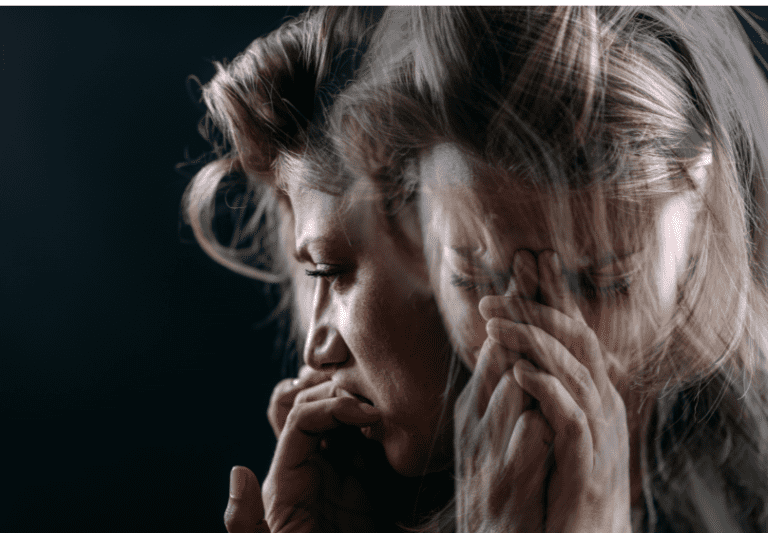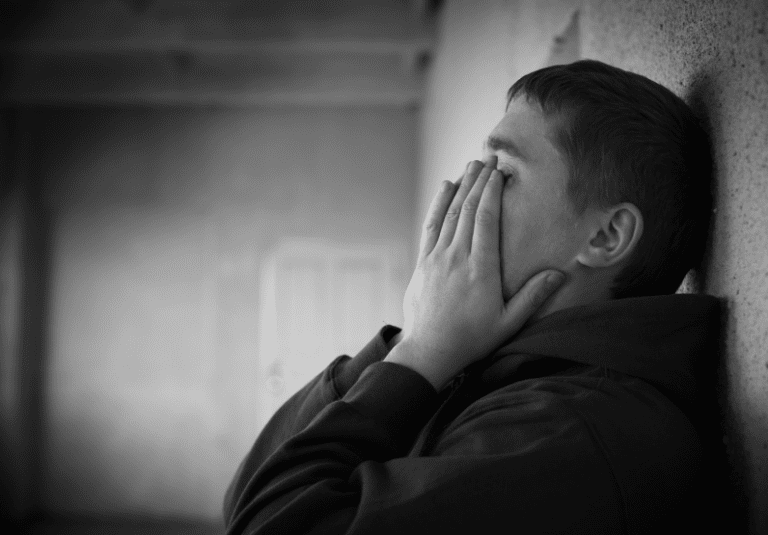Experiencing trauma is a common occurrence for millions of people around the world. Sadly, for some, a traumatic experience can lead to Post-Traumatic Stress Disorder, more commonly referred to as PTSD. In fact, according to the U.S. Department of Veterans Affairs, around 6% of the U.S. population will experience PTSD at some point during their life. Thankfully though, there are several treatments a person can receive to make living with PTSD more manageable. However, PTSD may not always be evident, so it is important to understand the disorder and its symptoms to know whether or not a loved one has PTSD.
What is PTSD?
The National Institute of Mental Health describes Post-Traumatic Stress Disorder as a disorder that affects individuals that continuously experience natural reactions to traumatic situations. By feeling these reactions repeatedly or even unexpectedly, the experience often causes them to feel frightened or distressed. Despite popular belief, PTSD does not always stem from a dangerous or life-threatening event. PTSD is caused by trauma, which most often comes from a traumatic event. An event like this can arise from a variety of situations and circumstances, such as potentially life-threatening situations or even the unexpected death of a loved one.
What is a PTSD Episode?
A PTSD episode refers to a period during which a person experiences symptoms related to Post-Traumatic Stress Disorder (PTSD), often triggered by memories, sensations, or situations reminiscent of the trauma they endured. PTSD is a mental health condition that can develop after someone experiences or witnesses a traumatic event, such as combat, sexual assault, natural disasters, or accidents.
What Happens During a PTSD Episode?
During a PTSD episode, the individual may experience a range of intense emotional, physical, and psychological symptoms, including:
- Re-Experiencing Symptoms:
- Flashbacks: Reliving the traumatic event as if it’s happening in the present.
- Intrusive Thoughts: Unwanted, distressing memories of the event.
- Nightmares: Vivid, trauma-related dreams that disrupt sleep.
- Emotional Distress: Feeling intense fear, sadness, or anger in response to triggers.
- Physical Symptoms:
- Racing heart.
- Sweating.
- Shaking or trembling.
- Difficulty breathing.
- Avoidance Behaviors:
- Avoiding places, people, or activities that remind them of the trauma.
- Shutting down emotionally or withdrawing from others.
- Hyperarousal Symptoms:
- Feeling constantly “on edge” or hypervigilant.
- Difficulty concentrating or sleeping.
- Irritability or sudden outbursts of anger.
- Negative Changes in Mood or Thinking:
- Persistent feelings of guilt, shame, or worthlessness.
- Difficulty remembering key details of the traumatic event.
- Loss of interest in activities previously enjoyed.
Common Triggers of a PTSD Episode
- Sights, sounds, or smells associated with the trauma.
- Anniversaries of the traumatic event.
- Stressful situations or reminders of the trauma.
- Physical sensations, such as pain or tightness, similar to what was experienced during the event.
Coping with a PTSD Episode
- Grounding Techniques:
- Focus on your surroundings (e.g., name five things you can see, four you can touch, etc.).
- Practice deep, controlled breathing.
- Seek Support:
- Reach out to trusted friends, family, or a therapist.
- Use Coping Tools:
- Keep a comforting object, music, or journal handy to help manage distress.
- Professional Help:
- A therapist or counselor can help manage and reduce episodes through techniques like Cognitive Behavioral Therapy (CBT) or Eye Movement Desensitization and Reprocessing (EMDR).
When to Seek Help
If PTSD episodes are frequent, severe, or interfering with daily life, seeking professional help from a mental health specialist is crucial. Proper treatment and support can significantly reduce symptoms and improve quality of life.
Common Signs of PTSD
The symptoms/signs of PTSD typically fall into one of four categories: intrusive memories, avoidance, negative changes in attitude, and changes in physical and/or emotional reactions. However, even within these categories, symptoms of PTSD can vary from person to person and often change over time.
1. Signs of Intrusive Memories
- Recurring and distressing memories of a traumatic event
- Flashbacks (reliving an event as if it is happening again)
- Nightmares about a traumatic event
- Emotional or physical reactions to something that remind an individual of a traumatic event
2. Signs of Avoidance
- Attempting to avoid thinking or discussing a traumatic event
- Avoiding people, places, and activities that remind one of a traumatic event
3. Signs of Changes in Attitude
- Negative thoughts about oneself, others, or life in general
- Feelings of hopelessness
- Feelings of loneliness
- Problems remembering, especially important details about a traumatic event
- Difficulty in maintaining relationships
- Loss of interest in hobbies and activities
- Difficulty experiencing and expressing positive emotions
- Feeling numb emotionally
4. Signs of Changes in Physical and/or Emotional Reactions
- Being easily frightened
- Constantly anticipating danger
- Self-destructive behavior (drinking, speeding, gambling, etc.)
- Issues with sleeping
- Having trouble concentrating
- Irritability
- Outbursts of anger
- Aggressive behavior
- Feelings of guilt or shame
Although the signs of PTSD fall into these categories, a person may not exhibit every sign from that category or signs from each of the categories. PTSD is more personal, so despite having similar symptoms between those living with it, each case — like every person — is unique.
Searching for Mental Health Treatment in Tennessee?
Determining if a loved one is living with PTSD can often be difficult. Every case of Post-Traumatic Stress Disorder is different. The disorder can stem from any sort of traumatic event and affect any person differently. Two people who experience the same traumatic event will have different reactions to the event. Even if both people develop PTSD from the same event, they may show different signs of PTSD later on.
To help a loved one who may be living with PTSD, it is best to understand what PTSD is and look for any and all signs. By identifying the signs, one can help them to acknowledge the affliction and seek mental health treatment.
For more information on Post-Traumatic Stress Disorder and mental health treatment for PTSD, contact Knoxville Recovery Center today! Our team of mental health professionals can answer any questions you may have about PTSD and discuss our treatment options.









